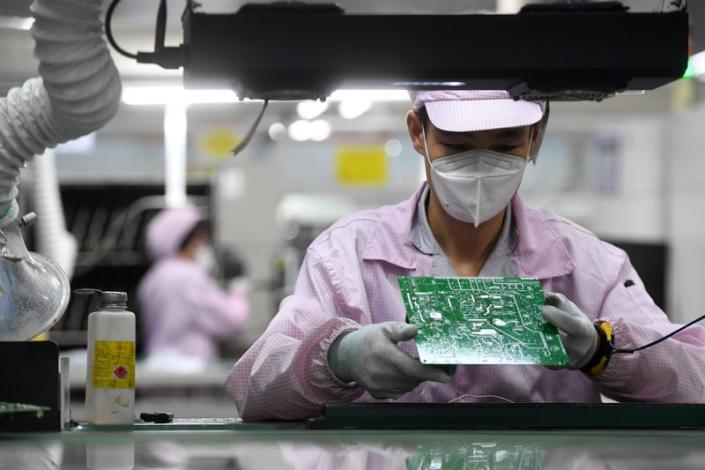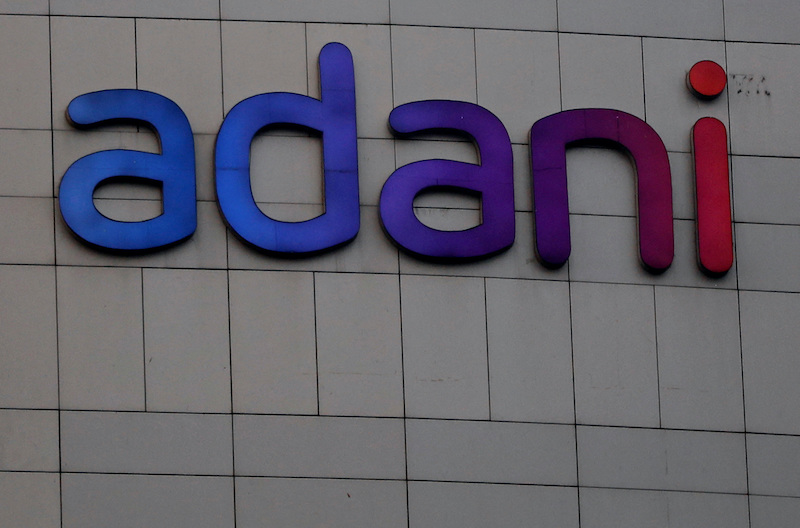China’s economy has shown signs of stabilising, with factory production and retail sales picking up in August, but dark clouds continue to hover over property sector.
Data from the National Bureau of Statistics on Friday showed that industrial output was up by 4.5% last month from 2022, the best result since April and an outcome that topped 3.7% growth in July and forecasts by analysts polled by Reuters.
Retail sales rose by 4.6%, helped by summer travel expenditure, which was a healthy rise from the 2.5% increase in July and also well over expectations.
This suggests that consumption spending is improving and that recent measures to shore up a faltering economy are starting to bear fruit.
Yet, analysts say a durable recovery is far from assured, most notably because confidence remains low in the debt-laden property sector, which continues to be a major drag on growth.
ALSO SEE: Moody’s Sounds Alarm For China’s Troubled Property Sector
Markets up, yuan hits two-week high
Policymakers have faced a daunting task trying to revive growth after last year’s long Covid lockdowns, persistent weakness in the property industry, while the currency and global demand for its manufactured goods have slumped.
“Despite signs of stabilisation in manufacturing and related investment, the deteriorating property investment will continue to pressure economic growth,” Gary Ng, Natixis Asia Pacific senior economist, said.
The markets, however, showed relief at some of the better-than-expected indicators.
The Chinese yuan touched two-week highs against the dollar, while the blue-chip CSI 300 Index was up 0.2% and Hong Kong’s Hang Seng Index climbed 1% in early morning trade.
Further aiding sentiment, separate commodities data showed China’s primary aluminium output hit a record-monthly high in August while oil refinery throughput also rose to a record.
PBOC cuts reserves ratio again
Friday’s data followed better-than-expected bank lending figures, narrowing in the declines of exports and imports as well as easing deflationary pressure.
The country’s passenger vehicle sales also returned to growth in August from a year earlier, as deeper discounts and tax breaks for electric vehicles boosted consumer sentiment.
To sustain the recovery momentum, China’s central bank said on Thursday it would cut the amount of cash that banks must hold as reserves for the second time this year to boost liquidity. Earlier in the day, the bank also rolled over maturing medium-term policy loans to inject more liquidity into the financial system.
But analysts say more fiscal and monetary policy steps are needed as an ailing property sector, high youth unemployment, uncertainty around household consumption and rising Sino-US tensions over trade, technology and geopolitics have raised the bar for a durable economic recovery in the near future.
“The reserve requirement ratio (RRR) cut yesterday sent an interesting signal that there is a sense of urgency to boost growth,” said Zhiwei Zhang, chief economist of Pinpoint Asset Management, expecting more policies over the coming months to bolster overall demand.
Natixis’ Ng said confidence remains the root of most problems requiring larger “constructive policy and regulatory changes” to boost growth momentum.
Property doldrums, weak investor confidence
The once mighty property sector remains a major drag on the $18-trillion economy, with Country Garden, the largest private developer, the latest conglomerate facing a repayments squeeze because of Beijing’s prolonged effort to reduce companies’ massive debts.
The new industry figures provide little comfort for policymakers and investors. For August, property investment extended its fall, down 19.1% year-on-year from a 17.8% slump the previous month, according to Reuters calculations based on NBS data.
“We are still hopeful that housing sales would stage small sequential pickups in the coming months, but stimulus will ultimately stop short of reflating the sector,” Louise Loo, China Economist at Oxford Economics, said.
Other data, also released Friday showed weak investor confidence, with private investment shrinking 0.7% in the first eight months, deepening from the contraction of 0.5% in January-July.
Fixed asset investment expanded at a slightly slower pace of 3.2% in the first eight months of 2023 from the same period a year earlier, versus expectations for a 3.3% rise. It grew 3.4% in the first seven months.
An uncertain business climate meant companies remained wary about hiring, but the nationwide survey-based jobless rate improved a touch to 5.2% in August versus 5.3% in July.
“Beijing may have to introduce more aggressive property easing measures to deliver a real recovery,” Nomura analysts said, echoing a consensus view among China observers.
“Beijing will likely once again have to play the role of borrower and spender of last resort.”
- Reuters with additional editing by Jim Pollard
ALSO SEE:
Country Garden Stock Jumps as Creditors Back Bond Extensions
Five Big Chinese Cities Lift Home Buying Curbs to Aid Developers
Multiple Moves Needed to Defuse China’s Local Debt Crises
























